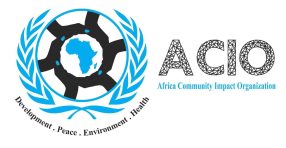
Unprecedented levels of hunger continue to have devastating effects on children, girls, and young women, with girls often being the first to be taken out of school, the last to eat when food runs out, and vulnerable to early and forced child marriage, child labor, gender-based violence, sexual exploitation, and unwanted pregnancy. The right to food is recognized in the 1948 Universal Declaration of Human Rights (UDHR) as part of the right to an adequate standard of living, and is enshrined in the 1966 International Covenant on Economic, Social, and Cultural Rights (ICESCR), with an increasing number of countries having a law that provides for the right to food.
Addressing hunger is a legal obligation under international human rights law.
Child hunger degrades human dignity and thus constitutes a violation of human rights. Eliminating child hunger through a human rights-based approach allows us to protect and support girls in ways that a needs-based approach cannot. Nearly 30 countries have enshrined the right to food in their constitutions. Only the Democratic Republic of the Congo, Honduras, Kenya, and Niger appear on this list of the 38 countries in the emergency phase of food insecurity in 2022.
However, it is one thing to legislate and quite another to put this right into action. Although the right to food is enshrined in some countries’ constitutions, it is not always respected. Hunger and malnutrition are not always caused by lack of food – but a lack of access to available food by large segments of the world’s population, largely because of poverty.
Despite the fact that more than enough food is produced to feed the world’s population, up to 829 million people go hungry. Six out of ten people experiencing acute food insecurity live in conflict or insecure countries. The obligation to respect, protect, and fulfill the right to adequate food imposes the obligation to allow humanitarian access, so that providers can deliver food aid cannot be denied, and access to food for affected populations must be rapid, safe, and unimpeded.
The hunger crisis is worsening.
The outlook for the rest of 2022 is even more creating an additional serious bad situation, as the hunger crisis in many countries worsens. In Ethiopia, Yemen, South Sudan, Somalia, Afghanistan, and the Democratic Republic of the Congo alone, 1870,000 people faced starvation and death as of September 2022. The effects of the climate crisis and COVID-19 are now being exacerbated by soaring inflation, rising food, energy, and fertilizer prices, as well as food shortages caused by the ongoing conflict in Ukraine, and nearly 670 million people are expected to be hungry in 2030. This equates to nearly 8% of the global population.
Therefore, according to recent projections, children born in 2020 will likely face nearly three times the number of droughts and crop failures experienced by their grandparents, with children in lower-income countries bearing the brunt of the environmental crisis. More lives will be lost unless action is taken now, and the devastating effects on the lives of children, particularly girls, will be felt for decades. We must begin to regard food as a fundamental human right that must be protected. Do you know that you can take action by supporting women, girls facing hunger in Africa in partnership with Africa Community Impact Organization?

PREPARED BY JANET
